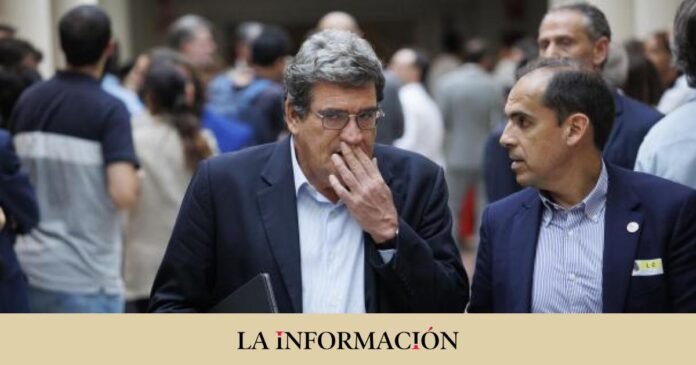Surely, pensions and their reform are one of the most sensitive and highly interesting issues, both for workers and retirees. Any hint of change generates uncertainty, especially now that the introduction of novelties is expected with the second reform that José Luis Escrivá is negotiating at the social dialogue table, together with the class unions (UGT and CCOO) and the CEOE. At the end of 2021, the Council of Ministers celebrated the first reform of the pension system, which recovered the annual CPI as a revaluation index.
To the surprise of many, the update affected for the first time pensioners in the Passive Classes and those in the General Social Security Regime simultaneously. Starting from this point, the Independent Trade Union and Officials Central (CSIF), the most representative union in public administrations, has demanded the Minister of Inclusion, Social Security and Migrations to do the same and include all officials in this second and imminent reform.
The reform undertaken by the Government two years ago had the objective of guaranteeing the sustainability of the pension system without harming the purchasing power of future retirees: “the first step for a modernization of the system that gives peace of mind to today’s and tomorrow’s pensioners “. To this end, the reduction coefficients for voluntary and involuntary early retirement were made more flexible, and the ordinary retirement age has been delayed (in accordance with the provisions of Law 23/2013). Formulas were also introduced such as an additional 4% to encourage delayed retirement and the Intergenerational Equity Mechanism (MEI), a new withholding that is charged to workers’ payroll for 0.6% of salary, among others.
However, the pensioners included in the Passive Classes Regime did maintain their early retirement conditions, as well as the rest of the requirements. Now, like the rest of the workers, they seek to optimize their conditions of access, remuneration and guarantees. Thus, just 10 days ago the CSIF will transfer to the Executive a series of proposals such as the incorporation into the measures to alleviate the gender gap in pensions or an incentive to voluntarily extend working life in order to be able to participate in the social dialogue with other associations.
Officials included in the Passive Classes Regime
More than 600,000 civil servants in Spain, basically career civilians from the State Administration, Justice, the General Courts, as well as other constitutional, regional and state bodies, are part of the Passive Class Regime. Likewise, among this group are career and employment military personnel, politicians, former ministers and former presidents. It is a group in extinction, since no official can be linked to it since January 1, 2011.
For this group, retirement or forced retirement is declared ex officio at age 65, with the exception of university professors, magistrates, judges, prosecutors, court clerks and property registrars, for whom the compulsory retirement age is extended until 70. This contrasts with the legal ordinary retirement age of civil servants (and other workers) subject to the General Social Security Regime, which has been increasing since 2013 to reach 67 years in 2027. However, the The pensions of the Passive Classes Regime are revalued according to the same percentage as the rest of the public Social Security pensions, in accordance with Royal Decree 65/2022.
Join the complement to reduce the gender gap
The supplement to reduce the gender gap, in force since February 2021, consists of a fixed amount of 28 euros per month per child, which is applied from the first to a maximum of four and which is added to the pension to correct the difference between the average pensions received by men and women. It is a plus from which the Government has excluded voluntary pensions from the Passive Class Regime. This supplement seeks to mitigate possible damage to the professional career in the periods after having a child, suffered mostly by women, and is one of the main causes of the existence of the gender gap in the amount of the pension.
The complement seeks to iron out the damages in the professional career of women after having a child
From the CSIF they have already denounced the change of criteria of the Ministry (which at first did contemplate its inclusion) and warned that partial retirements from the General Regime were also left out. The Executive maintains that this exclusion for the purposes of the supplement does not imply giving the group discriminatory treatment given that the Passive Class Regime in this case is “more favourable” than that established for voluntary early retirement for women in the General Regime.
Encourage the extension of working life
On the other hand, CSIF defends increasing “regulatory assets of Passive Class pensions and establishing a cumulative 5% annual incentive for those people who voluntarily decide to extend their working life” beyond voluntary retirement. An issue that is expected to be dealt with in the next negotiation of the draft Public Function Law for the General State Administration.

